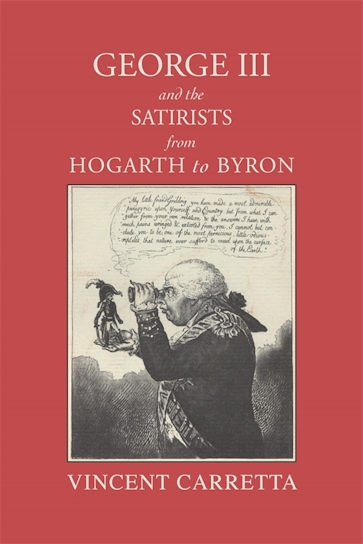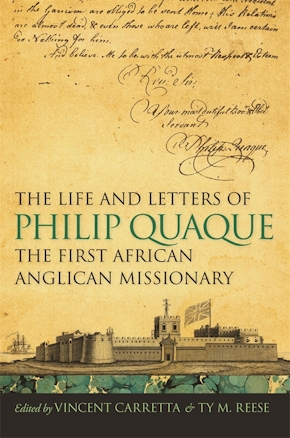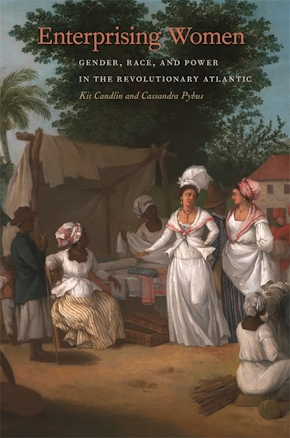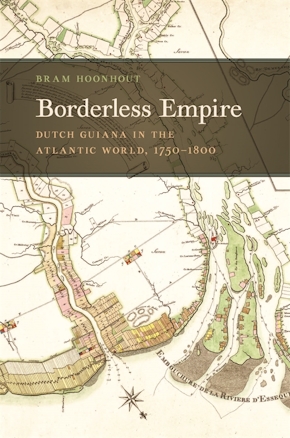George III and the Satirists from Hogarth to Byron
Title Details
Pages: 408
Illustrations: 160 illus.
Trim size: 6.000in x 9.000in
Formats
Paperback
Pub Date: 01/01/2008
ISBN: 9-780-8203-3124-9
List Price: $36.95
Related Subjects
HISTORY / Modern / 18th Century
HISTORY / Europe / Great Britain
LITERARY CRITICISM / European / English, Irish, Scottish, Welsh
George III and the Satirists from Hogarth to Byron
Skip to
- Description
- Reviews
King George III inherited two legacies from the restoration of the monarchy in 1660: his crown and a tradition of regal satire. As the last British monarch who fully ruled as well as reigned and as the last king of America, George III was the target of constant satiric attacks even before he came to the throne in 1760 and for years after his death in 1820.
An interdisciplinary and intercontinental study, this book examines the political satiric poetry and political graphic prints of Britain and Colonial America during the late Georgian period—a tumultuous era that witnessed the American and French revolutions, the Napoleonic wars, and the birth of the Romantic movement. Using George III as his focal point, Vincent Carretta draws on a wide range of verbal and visual sources to illuminate the development of satire from the work of Charles Churchill and William Hogarth to Lord Byron and George Cruikshank. Extending the argument from his earlier book, The Snarling Muse, which dealt with satire during the first half of the eighteenth century, Carretta demonstrates that the satiric line of descent from the early decades of the 1700s through the 1820s is much more direct than most scholars have recognized.
Throughout the book, Carretta examines not only how the monarchy was reflected in satire but how satire in turn may have influenced the regal institution. In the 1790s, for example, British satirists discovered that their earlier attacks on the king for not being kingly enough had brought an unanticipated consequence: they had created the basis for the fictional commoner-king, Farmer George, which the king's supporters used with great rhetorical effectiveness against the threat of revolutionary French ideas.
Enhanced by more than 160 illustrations, George III and the Satirists effectively demonstrates how a wide range of materials, verbal and visual, literary and nonliterary, can be marshaled in an interdisciplinary pursuit that crosses conventional fields and periods, repositioning artists and authors who are too often approached outside their original contexts.
The reign of George III was the last hurrah of personal monarchy in England. The King's character and image really counted for something. With skill, subtlety, and gaiety, Carretta guides us through the wild thickets of the English comic genius, where the grossest disrespect was interchangeable with the most exuberant affection and rebellion can never be distinguished from carnival. A wonderful study of the rough music of politics.
—J. G. A. Pocock, Johns Hopkins University
Carretta's book extends the study of visual satire that he started so ably in his first book, and he augments his literary approach with a splendid treatment of the satirical prints relating to the reign of George III. Carretta's intercontinental approach and intertextual analyses of many major poets and artists, from Churchill and Blake to Gillray and Byron, are admirable. George III and the Satirists will have wide appeal both to undergraduate teachers and advanced scholars.
—Paul J. Korshin, University of Pennsylvania
Carretta's book provides a comprehensive history of verbal and visual figurations of George III. Through an exploration of the strategies employed by Georgian writers and artists for satirizing the king's person and office, it offers a rich interdisciplinary account of the circulation of regal topoi, thereby illuminating the political, ideological, and aesthetic discourse of the period. George III and the Satirists from Hogarth to Byron is essential reading for every student of Georgian culture, a milestone in our appreciation of the complex interrelationships among power, language, and art.
—Robert L. Patten, Rice University
One of the best studies ever done of the king and the people he tried to lead lovingly and dutifully, if not always wisely and well.
—Albion



